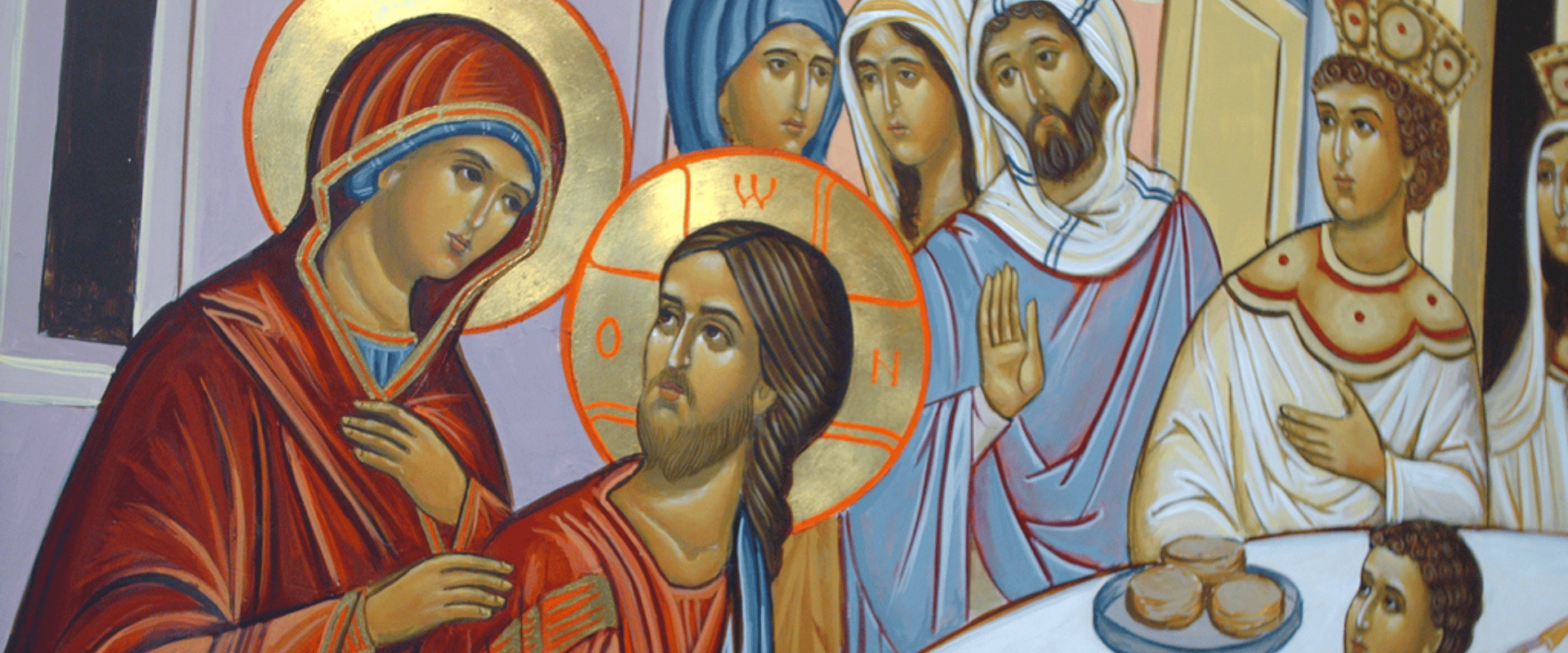Did Jesus Have a Wife? (And If So, How Many?)

Written by Joshua Schachterle, Ph.D
Author | Professor | Scholar
Author | Professor | BE Contributor
Verified! See our editorial guidelines
Verified! See our guidelines
Edited by Laura Robinson, Ph.D.
Date written: February 18th, 2024
Disclaimer: The views and opinions expressed in this article belong to the author and do not necessarily match my own. - Dr. Bart D. Ehrman
People interested in the historical Jesus often ask whether Jesus had a wife. It’s a reasonable question. Marriage was undeniably an important rite of passage in Jesus’ time, as it is in ours. What were the social norms around marriage in 1st-century Palestine? Were all men required to be married? If so, how could Jesus not have been married?

Requirements for Marriage in Rabbinic Judaism
Reza Aslan in his book Zealot: The Life and Times of Jesus of Nazareth, says that it would have been “almost unthinkable” for a Jewish man of Jesus’ time not to have married. Is this correct?
Certainly, Rabbinic Judaism emphasized the importance of marriage. Harvey McArthur notes that the Tosefta, a collection of sayings from Jewish Oral Law, seem to say that marriage is an absolute requirement for men:
"R. Eleazar said: Any man who has no wife is no
proper man; for it is said, Male and female created
He them and called their name Adam."
It’s likely that a lot of people get their ideas of ancient Jewish marriage from such rabbinic quotes. However, there are several problems with basing Jesus’ marital status on such quotations.
First, aphorisms such as these argue for an ideal. They don’t necessarily describe the reality on the ground. For example, when the Ten Commandments say “Thou shalt not steal,” it doesn’t mean that no one stole. In fact, the very need for such a commandment shows that some people were stealing. In the same way, the rabbis would not have felt the need to articulate marriage as a requirement if all people were married as a matter of course.
Second, Rabbinic Judaism is a later historical phenomenon. During Jesus' time (6 BCE-30 BCE), the religious authority lay with the priesthood in the Jerusalem Temple. This era was called the Second Temple Period, since the first Temple had been destroyed by the Babylonians in 586 BCE and Herod the Great had built a second Temple.
It wasn’t until after the destruction of the second Temple by the Romans in 70 CE that the rabbis became the ultimate Jewish religious authorities. So it doesn’t make sense to speculate about Jesus’ time and place by comparing his circumstances to ideas from decades after his death.
Was Everyone Married in Jesus’ Time?
We know that there were unmarried men in Jesus’ time. One case in point is the Essenes, a 1st-century apocalyptic Jewish group who created the Dead Sea Scrolls. Bart Ehrman notes that the Essenes believed God’s intervention into the world to punish the wicked and reward the righteous was imminent.
The Essenes devoted themselves to preparing for this coming end. And so they avoided social relationships that would distract them from their one and obsessive goal of being pure before God in view of the coming end.
The Essenes saw marriage as a distraction and sexuality as impure, so they remained unmarried and celibate in order to prepare themselves for the end. Ehrman also points out that since Jesus was also an apocalyptic preacher, celibacy for him would not have been out of the question.
Keep in mind also that John the Baptist and Paul, both apocalyptic Jewish preachers, were known to be unmarried.
There are references in the New Testament to at least some of the twelve disciples being married. When Jesus goes to Peter’s house in the Gospels, for instance, he meets Peter’s wife and heals his mother-in-law. Paul also makes references to some apostles’ wives, although he was unmarried himself:
Do we not have the right to be accompanied by a believing wife, as do the other apostles and the brothers of the Lord and Cephas (Peter)?
He goes on to say, though, that he wishes all Jesus-followers were celibate like himself. Why? Because God is going to intervene any moment and end the current age. Marriage is simply a distraction which will have no meaning in the age to come. It turns out there are good reasons to think that Jesus would have agreed with him.
In fact, Jesus makes a point about marriage in terms of the imminent end of history in a story in the Gospels. In Mark 12:18-27 a Jewish group called the Sadducees, who unlike apocaplypticists did not believe in the resurrection of the dead at the end of time, tries to trick Jesus.
They give Jesus a hypothetical situation: Moses said that if a woman’s husband dies and they are childless, the husband’s brother must marry the wife. The Sadducees posit this happening to a woman who then marries six of the husband’s brothers all of whom die without producing children, and then dies herself. They ask Jesus whose wife will she be after the resurrection.
Jesus’ answer is interesting and may give us a clue to his attitude toward marriage:
Jesus said to them, “Is not this the reason you are wrong, that you know neither the scriptures nor the power of God? For when people rise from the dead, they neither marry nor are given in marriage but are like angels in heaven.”
As Bart Ehrman notes, when Jesus talks about ethics it’s not about long term behavior – the end of history will happen at any moment, after all – but rather about acting out the values of the coming Kingdom of God now. If at that time people will not marry, why marry now? It’s a good indication that Jesus would have seen abstaining from marriage as a good thing.
In terms of 1st-century Jewish religious views, then, it was certainly not “unthinkable” for a man to remain unmarried. An apocalyptic preacher like Jesus, who believed that the current world was about to end, may have simply considered marriage unimportant in the grand scheme of things.
By the way, Ehrman points out yet another problem with the notion that all Jewish men of Jesus’ time were married: there weren’t enough women. He mentions that Hebrew Bible scholar Carol Meyers told him that except in times of war, men always outnumbered women in ancient societies because so many women died in childbirth.
FREE COURSE!
WHY I AM NOT A CHRISTIAN
Raw, honest, and enlightening. Bart's story of why he deconverted from the Christian faith.
Over 6,000 enrolled!
But What About Mary Magdalene?
In another article, I addressed the question of whether Jesus and Mary Magdalene were married. This is an argument often found in sensational novels like The Da Vinci Code. It’s a seductive idea, but I’ll summarize here why I think it’s unlikely.
This idea was mostly gleaned from non-canonical gospels written much later than the canonical Gospels. These gospels are often called “Gnostic,” a term which scholars now think is problematic since there were many groups under this umbrella which may or may not have had things in common. However, it is undeniable that Mary plays a suggestive part in several of the apocryphal gospels.
For example, the Gospel of Philip says this:
There were three who always walked with the Lord: Mary, his mother, and her sister, and Magdalene, who was called his companion. His sister, his mother and his companion were each a Mary.
Is “companion” here used in a romantic sense? While that interpretation would be understandable in the modern world, in the ancient world, such a companionship would have seemed scandalous were they not married. However, there is no denying the suggestive nature of another quote from the same gospel (the parts in brackets are actually guesses by scholars since those words are illegible in the original manuscript):
And the companion of the [savior was] Mary Magdalene. [Christ] loved Mary more than [all] the disciples, [and used to] kiss her [often] on the [–]. The rest of the disciples [were offended by it and expressed disapproval]. They said to him, “Why do you love her more than all of us?” The Savior answered and said to them, “Why do I not love you like her? When a blind man and one who sees are both together in darkness, they are no different from one another. When the light comes, then he who sees will see the light, and he who is blind will remain in darkness.”
There are two things to note about this passage. First, Ehrman notes that a kiss for the earliest Christians was merely a greeting rather than something romantic. It was given between people of the same sex as well as those of different sexes and called “the kiss of peace” in the New Testament.
Second, Ehrman also notes that in this passage, the kiss is used as a symbol of the passing of knowledge from Jesus to Mary.
Long story short, it is highly unlikely that Jesus and Mary Magdalene were married.

Conclusion
It’s a common misunderstanding that all men were required to marry in Jesus’ time and that, therefore, Jesus must have been married. There are better reasons, though, for believing that he wasn’t.
First, demographics don’t lie: There were generally more men than women in ancient societies because of women dying in childbirth. Somebody had to be left out.
Second, while there is evidence that Rabbinic Judaism placed a high value on all men getting married, Jesus did not live during the time of Rabbinic Judaism which did not get its start until after the destruction of the Temple in 70 CE. He lived decades before the Rabbis became the principal religious authority.
Third, there were certainly unmarried men during Jesus’ time. The Essenes, for example, believing the world was about to end, did not want the distraction of marriage or the impurity of sexuality. Paul and John the Baptist were unmarried as well.
Finally, the notion of a marriage between Jesus and Mary Magdalene is a myth prompted by misreadings of apocryphal gospels. While Mary was certainly important in the early Jesus movement, there is no credible evidence that she and Jesus were married.
FREE COURSE!
WHY I AM NOT A CHRISTIAN
Raw, honest, and enlightening. Bart's story of why he deconverted from the Christian faith.
Over 6,000 enrolled!
